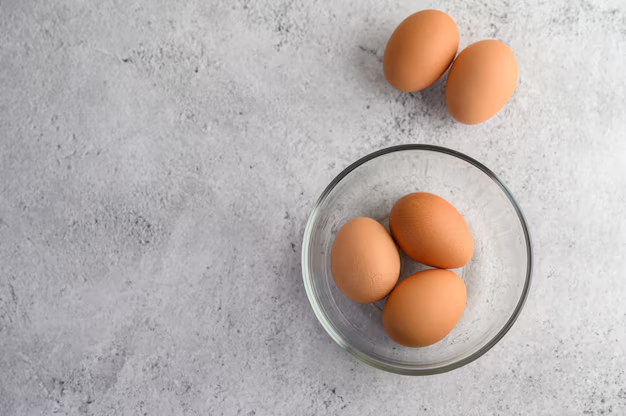How to Ensure Your Eggs Stay Fresh in the Fridge
Have you ever opened the refrigerator, only to wonder whether the eggs inside are still good? It's a common kitchen quandary. Understanding how to store eggs properly can help extend their shelf life and maintain their quality. Let's delve into the essentials of egg storage, exploring how long you can expect them to last in the refrigerator and how you can make the most of this everyday staple.
🥚 The Basics of Egg Shelf Life
Eggs are a staple food in many households due to their versatility and nutritional benefits. But how long can you really keep them before they start to spoil? Generally, refrigerated eggs can last for several weeks beyond the date printed on the carton. However, there are several factors that affect this duration, including storage conditions and handling practices.
Factors Influencing Egg Freshness
Refrigeration Temperature: The ideal temperature for storing eggs is between 33°F and 40°F. Keeping eggs too warm or too cold can accelerate spoilage or compromise quality.
Original Packaging: Preserve eggs in their original carton. It protects them from absorbing strong odors and flavors from other foods in the fridge.
Egg Quality and Type: The freshness of eggs at purchase can vary. Always choose eggs that look clean and uncracked. Free-range and organic eggs can have slight differences in longevity due to production methods.
🧊 The Ideal Storage Practices for Eggs
Storing eggs correctly helps to maximize their shelf life and ensure they remain safe to eat. Here are some best practices:
Quick Tips for Proper Egg Storage
Keep Them Cold: Always refrigerate eggs after purchasing. Room temperature can significantly shorten shelf life.
Use the Main Body of the Fridge: Store eggs where the temperature is most consistent, not on the door.
Leave in Original Carton: Protects from contamination and preserves the expiration date.
Check for Freshness: Conduct a basic float test by placing eggs in a bowl of water. Fresh eggs sink; older ones may float due to increased air inside the shell.
🍳 Understanding Expiration Dates and Codes
Egg cartons often have a "sell-by" or "expiration" date printed on them, as well as a Julian date (a three-digit number that represents the day of the year). Here's how to decipher them:
Sell-By/Expiration Date: This date is a guideline for retailers. Eggs can usually be safe to consume several weeks past this date if stored properly.
Julian Date: Indicates the packing date. For example, a Julian date of "001" means the eggs were packed on January 1. This helps in assessing the true freshness.
Recognizing When Eggs Go Bad
Common signs of eggs that have spoiled include an unusual odor inside the shell, a shell that develops a slimy or powdery appearance, or a drastic change in appearance when cracked open. If in doubt, always trust your senses.
🌡️ How Long Cooked Eggs Last
Cooked eggs have a shorter shelf life compared to raw ones. Generally, they should be consumed within a few days of preparation. Here’s a closer look:
Boiled Eggs: These can last approximately one week in the fridge if peeled and stored appropriately.
Other Cooked Dishes: Scrambled eggs, frittatas, and quiches should be eaten within 3 to 4 days.
🥚 Exploring Different Egg Types and Storage Variations
Not all eggs are created equal. Storage practices may vary based on the type:
Duck and Other Poultry Eggs
These can often be stored using the same methods as chicken eggs, though availability might vary seasonally in some regions.
Preserved Eggs
Some cultures use methods like salting or pickling to extend the shelf life of eggs. These methods can considerably prolong the edibility of eggs but may alter their texture and flavor.
📋 Practical Quick-Reference Guide
To help you manage your eggs with ease, here’s a handy reference guide to ensure longevity and quality:
| Type of Egg Storage | Expected Lifespan |
|---|---|
| Refrigerated Raw Eggs | 3–5 weeks |
| Boiled Eggs | Up to 1 week |
| Scrambled Eggs/Frittatas | 3–4 days |
| Preserved Eggs | Varies (check packaging) |
💡 Key Takeaways
- 💡 Refrigeration is crucial for maximizing egg longevity.
- 💡 Store eggs in their original carton to preserve quality.
- 💡 Conduct a float test to check beyond the expiration date.
- 💡 Different eggs mean different timelines; know your type.
At the end of the day, proper egg storage is essential for ensuring you get the most out of your grocery purchases while maintaining safety and quality. By sticking to these guidelines, you can confidently use eggs in your meals, knowing they're fresh and wholesome. With a bit of care, eggs can remain a reliable, nutritious part of your kitchen for longer than you might expect. Enjoy cooking with peace of mind and, most importantly, taste the difference that freshness brings!

